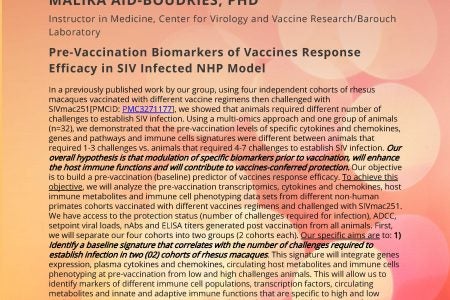Quantitative Issues in Cancer Research Working Seminar
VirtualDonald Jackson, Ph.D. Group Head of Precision Oncology Bioinformatics, Sanofi "Precision Oncology: Advancing Drug Discovery with Genomic Data" ABSTRACT: Continuing advances in genomics and bioinformatics are transforming drug discovery. At Sanofi Precision Oncology, we use genomics and bioinformatics to identify new targets, understand drug mechanism of action, select indications, identify biomarkers, and assess drug response. … Continue reading "Quantitative Issues in Cancer Research Working Seminar"












